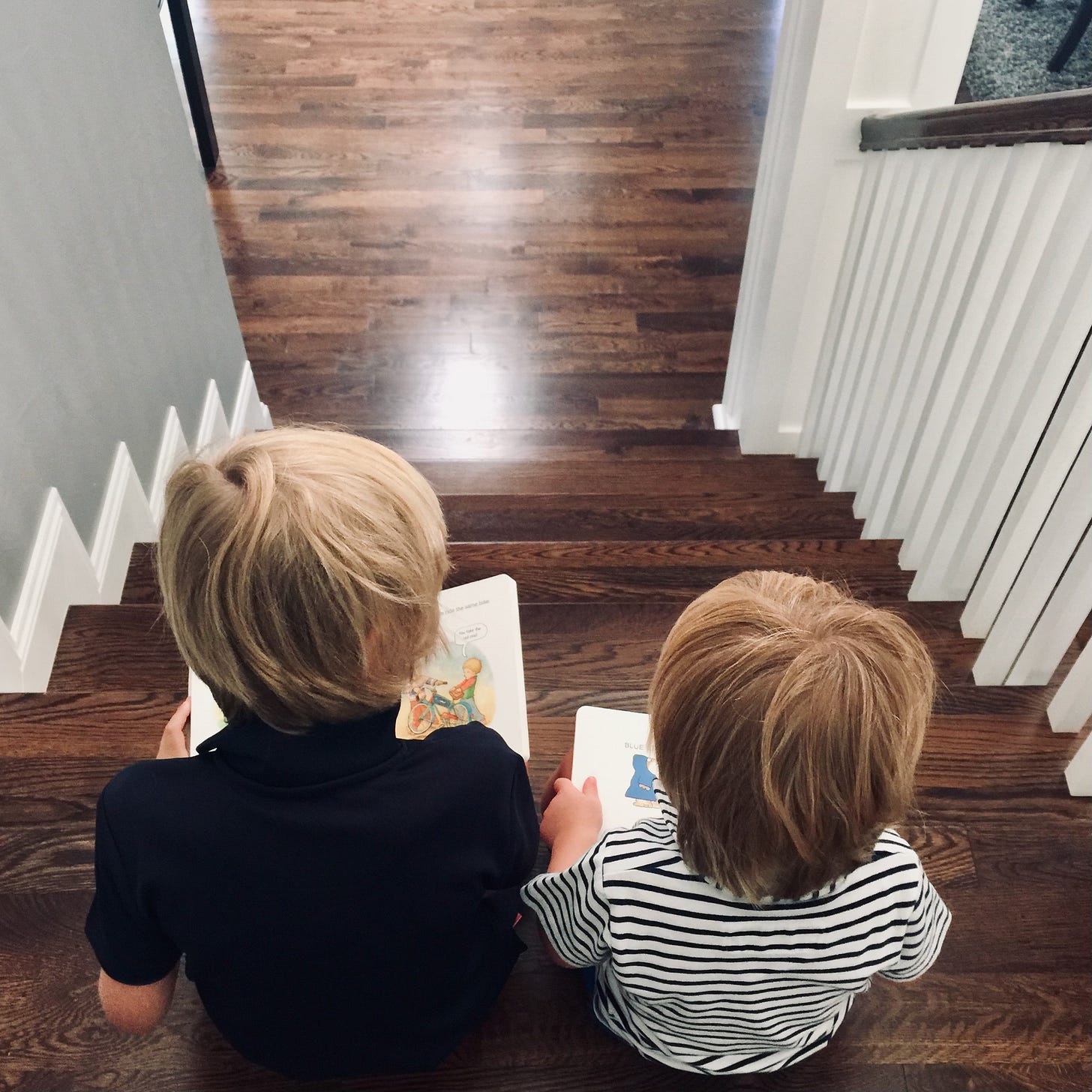Live Curious. Or Decline.
A modest manifesto for the last liberty.
I watched the Netflix miniseries American Manhunt: Osama bin Laden last weekend. It took me back to a few weeks after 9/11, when I traveled from Denver to New York for some meetings and boarded the subway. As the doors closed and the orange seats filled, a deliberate male voice came over the speakers:
“If you see something, say something.”
A blunt civic instruction, no? Equal parts vigilance and paranoia—hanging above a blur of commuters still in a daze of disbelief over what had happened. I remember thinking: What if the real danger isn’t the unattended bag, but the unattended question?
That was a key theme in American Manhunt: all the unattended questions that took over a decade to answer. Curiosity, after all, is the quiet infrastructure of freedom. Without it, we ride the same looped rails, convinced the schedule is the destination.
Curiosity isn’t instinct; it’s apprenticeship. Watch a toddler crush a dandelion, stare at the pulp, and ask a hundred unanswerable questions of their stained fingers. I see this every so often on the playground near my house in Salzburg as I’m walking my dog. You know, playgrounds, right? The natural habitat of kids before they lose the function of one of their arms to a palm-glued smartphone?
Then watch the questions taper as school bells ring, algorithms spoon-feed dopamine and certainty, and grown-ups clap only for correct answers delivered on time. We bark out knowledge we claim we want them to know, but rarely ask them to exercise the muscle that seeks it. Worse: we punish the stumble of a wrong hypothesis more harshly than the complacency of no hypothesis at all. A society that prizes tidy standardized text outcomes over messy inquiry soon finds itself allergic to ambiguity. Allergic, too, to dissent.
Yet ambiguity—dammit!—that is where the thrill lives! It’s the dimly lit hallway between headlines where all that wonderful, gooey nuance lurks.
But today’s information carnival is spinning out of control—making us dizzy to the point of nausea. Chatbots, deepfakes, outrage merchants, straight-up bullshit—bombard us with illusory closure. Here is the clip, the quote, the meme: verdict delivered.
Curiosity reopens the case. It asks, Who edited that footage? How was that statistic gathered? Is what I’m hearing in proper context? Is that…real? It doubts the tidy package, not because doubt is fashionable cynicism, but because doubt is the prologue to understanding. And in the age of AI advancing at the speed of light—we’re going to need a lot more tangible, and human, understanding.
Imagine if that subway announcement were repurposed: If you doubt something, ask something. We could append it to every algorithmic timeline on every app, tack it every classroom door, paste it to every promising startup’s slide deck. Reward the inconvenient question. Promote the awkward pause that precedes genuine listening. Subsidize wonder the way we subsidize corporations and billionaires. Teaching curiosity is cheaper; its dividend is long-term civil resilience.
Of course, curiosity does cost. The curious citizen—that annoying eyes-always-open-refusing-to-believe-what-they-see-on-TV-or-TikTok citizen—is harder to seduce, slower to outrage, damn near impossible to herd. Power prefers slogans, acronyms, and insults. Clean, binary, obedient. Curiosity drags complexity onto the stage, smears the makeup, and ruins the choreography.
The curious will always be told they are naïve dreamers or dangerous subversives. I say, “Accept both the cost of entry and the tariff surcharge!” They make up the price of admission to a much more open, much less turbulent sky.
So here is my flag, stitched hastily but with conviction: LIVE CURIOUS OR DECLINE. Fly it above the classroom, on your front porch, or as a background on your Zoom. Attach it to the bike rack on your Subaru. I won’t get a tattoo of it—yet—but it matters that much.
Teach your children to interrogate the obvious, reward your colleagues for the question that delays the end of the meeting, pause before sharing the link whose certainty feels delicious. Liberty survives not on the strength of our convictions, but on the sincerity of our questions.
If you see something unquestioned, say something. Then listen. Then ask again.



I'd love to go back to those early formative years and do it all again with this in mind:
Teach your children to interrogate the obvious, reward your colleagues for the question that delays the end of the meeting, pause before sharing the link whose certainty feels delicious. Liberty survives not on the strength of our convictions, but on the sincerity of our questions.
“I think, at a child’s birth, if a mother could ask a fairy godmother to endow it with the most useful gift, that gift would be curiosity.”
— Eleanor Roosevelt